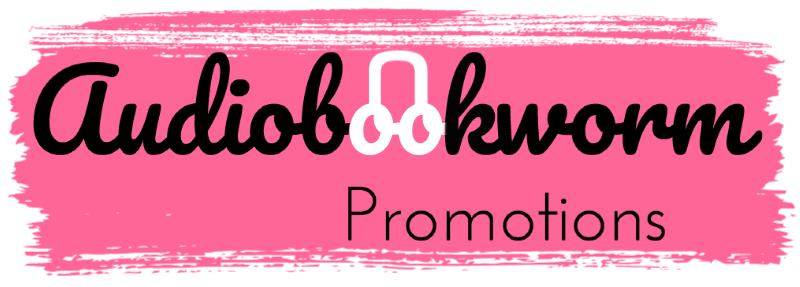
Author: Philip Elliott
Narrator: Robert Svetlik
Series: Angel City, Book 1
Length: 7 hours 29 minutes
Publisher: Into the Void
Released: Sep. 10, 2019
Genre: Noir Thriller

Eddie Vegas made a terrible mistake. Now he has to pay the price.
After a botched debt collection turned double murder, Eddie splits, desperate to avoid his employer, notorious LA crime boss Saul Benedict, and his men (and Eddie’s ex-partners), Floyd and Sawyer, as well as the police. Soon, he becomes entangled with the clever and beautiful Dakota, a Native American woman fresh in the City of Angels to find her missing friend - someone Eddie might know something about.
Meanwhile in Texas, ex-assassin Rufus, seeking vengeance for his murdered brother, takes up his beloved daggers one final time and begins the long drive to LA. When the bodies begin to mount, Detective Alison Lockley’s hunt for the killers becomes increasingly urgent. As paths cross, confusion ensues, and no one’s entirely sure who’s after who. But one thing is clear: They’re not all getting out of this alive.
As much a love letter to neo-noir cinema and LA as it is satire, the first book in the Angel City novels is a lightning-speed crime thriller equal parts Elmore Leonard and Quentin Tarantino.


Philip Elliott is an award-winning author, freelance editor, and founder and editor-in-chief of award-winning literary journal and small press publisher Into the Void. Philip was a National Juror of the 2019 Scholastic Art & Writing Awards, and a winner of the 2018 Big Pond Rumours Chapbook Prize. His writing has been nominated for The Pushcart Prize and Best of the Net. A music and film obsessive, Philip lives in Toronto with his wife and their spoiled pug.
Website⎮Twitter⎮Facebook⎮Instagram


Robert Svetlik is an actor and voiceover artist based out of Los Angeles. With a background in stage and classical theater, Robert has acted in works such as Who's Afraid of Virginia Woolf? and Twelfth Night. He has also lent his voice to commercials and audiobooks. Recently, Robert has enjoyed traveling and perfecting his homemade marinara recipe.
Website

- Do you believe certain types of writing translate better into audiobook format?
- Definitely. The best kind of audiobook to me is one full of dialogue and characters’ actions, with the exposition-type narration kept to a minimum—because this makes the audiobook more of a performance, more cinematic. Nobody Move is composed almost entirely of action and dialogue, and narrator Robert Svetlik did a killer job of bringing the characters to life in his subtle performances, as well as bringing out the black humor and making it more apparent, as I think in text form the dark humor is easier to miss.
- Definitely. The best kind of audiobook to me is one full of dialogue and characters’ actions, with the exposition-type narration kept to a minimum—because this makes the audiobook more of a performance, more cinematic. Nobody Move is composed almost entirely of action and dialogue, and narrator Robert Svetlik did a killer job of bringing the characters to life in his subtle performances, as well as bringing out the black humor and making it more apparent, as I think in text form the dark humor is easier to miss.
- Was a possible audiobook recording something you were conscious of while writing?
- In a way. I write my fiction as if it were a screenplay, but a bit more fleshed out. So in my head the book is like a movie, and I imagine the characters as if through a camera lens, while also seeing through their eyes and thinking via their thoughts, because I write entirely from my characters’ points of view at all times. This cinematic leaning created the perfect opportunity for a fun, engaging audiobook, so in some form I was conscious of it.
- In a way. I write my fiction as if it were a screenplay, but a bit more fleshed out. So in my head the book is like a movie, and I imagine the characters as if through a camera lens, while also seeing through their eyes and thinking via their thoughts, because I write entirely from my characters’ points of view at all times. This cinematic leaning created the perfect opportunity for a fun, engaging audiobook, so in some form I was conscious of it.
- How closely did you work with your narrator before and during the recording process? Did you give them any pronunciation tips or special insight into the characters?
- Before he began recording, Robert had some questions about the very upfront racism spouted by the character Rufus, a Texas ex-hitman who may as well be the Devil incarnate. I explained how, to me, Rufus is an almost cartoonish, over-the-top symbol for the ugly racism that has always been a distinct part of the United States, but has, sadly and worryingly, been rearing its vile head again since Trump seized power. I also explained that, because I write from my characters’ viewpoints 100% of the time, meaning that every sentence of the book is filtered through the characters’ perceptions of the world, it was essential that Rufus’s racism be undiluted to be totally true to his character.
Aside from that, though, Robert ran with the book and nailed every single chapter on the first try. I didn’t need to make a single change. Robert is an astoundingly talented narrator and I would recommend his services to anyone.
- Before he began recording, Robert had some questions about the very upfront racism spouted by the character Rufus, a Texas ex-hitman who may as well be the Devil incarnate. I explained how, to me, Rufus is an almost cartoonish, over-the-top symbol for the ugly racism that has always been a distinct part of the United States, but has, sadly and worryingly, been rearing its vile head again since Trump seized power. I also explained that, because I write from my characters’ viewpoints 100% of the time, meaning that every sentence of the book is filtered through the characters’ perceptions of the world, it was essential that Rufus’s racism be undiluted to be totally true to his character.
- Is there a particular part of this story that you feel is more resonating in the audiobook performance than in the book format?
- Honestly, the whole thing. For me, the audiobook format is absolutely the best way to experience this book. It was so important to me when writing Nobody Move that the book would instantly throw the reader into the story from the first scene to the last, grabbing the reader like films grab an audience. Robert’s narration achieved that in spades. I mean, I wrote this thing and revised it a million and one times, so I know every word of every scene by now, but when I listened to Robert’s narration for the first time I was instantly pulled into this world that Robert conjured to me as he spoke. In some ways I think an audiobook is almost a different story than the text version of a book. It’s a collaboration between writer and narrator/performer—the narrator leaves their own mark, too.
- How did you celebrate after finishing this novel?
- I started writing the next one! It’s called Porno Valley and is out September 2020. There’s no rest for the wicked, but none for indie authors either.
- In your opinion, what are the pros and cons of writing a standalone novel vs. writing a series?
Pros:
- You get to start again with a blank slate and you can go anywhere with it—with a series your hands are tied by the world you’ve created.
- You can reinvent yourself as an author.
- It’s more of a straightforward process finding an agent or publisher for a new standalone, or a bigger publisher than your previous novel.
- You might think you’d love to write a series but by the time you’ve completed the arduous task of finishing book one, you find that you feel done with the world and characters you’ve created, but if you’ve committed to a series you may feel your hands are tied.
Cons:
- Standalones mean you have to say goodbye to your characters—but what if you’re not done with them? And what if they’re not done with you?
- Standalones can be a missed opportunity commercially. It’s no secret that series sell well, and it makes perfect sense: If people like one book, they’ll probably buy the next, and the next. Standalones don’t offer the same likelihood of repeat readers. And no one is a more devoted fan than a series fanatic.
- It’s simply so much fun exploring the world you’ve created more and more with each successive book.
- I started writing the next one! It’s called Porno Valley and is out September 2020. There’s no rest for the wicked, but none for indie authors either.
- Have any of your characters ever appeared in your dreams?
- No, but I wish they would, that would be an incredible experience. Maybe it’s because my imagination is so active while I’m awake but I have decidedly dull dreams most times. Having said that, for a while I experienced a horrifying recurring dream in which I was being pursued by Tim Curry’s version of Stephen King’s Pennywise the Dancing Clown from It (although, who hasn’t? Thanks, Stephen.). I shudder just thinking about it.
- What's your favorite:
- Food: Indian roti with a vegetable vindaloo curry wrapped inside. Goddamn.
- Song: Music is too huge a part of my life to narrow this down to a single favorite song, so here’s a single song I really like instead: “Dancing in the Moonlight” by Thin Lizzy, the greatest rock ‘n’ roll band to ever rock the Earth. Thin Lizzy hail from Dublin, Ireland, which is where I’m from. They’re the best thing to ever come out of that place (screw you, James Joyce). Fun fact: Thin Lizzy are both referenced in Nobody Move and included on the official soundtrack playlist I made for the book on Spotify.
- Book: Jesus’ Son by Denis Johnson. It’s the book that marks the first soul-punching reading experience I had as an adult with a half-baked idea to be a writer, and it’s the book that made me commit properly to the idea of being a writer. It’s also unlike anything else out there. Nothing even comes close to Johnson’s originality of voice here.
- Television show: Breaking Bad. It’s the most flawless thing ever put to screen in my opinion. A masterclass not just of writing but across the board of filmmaking. Vince Gilligan, its creator, never lost sight of his vision for a moment from episode one to the last.
- Movie: Chinatown directed by Roman Polanski. It’s a masterpiece, perfect in every way, and was essentially (although not in actuality) the first film to be what we now call neo-noir. It turned the noir genre on its head, and is still one of the most stylish films ever made. The screenplay by Robert Towne is so flawless and perfectly structured it’s tempting to think it was produced by some high-powered super-computer from the future. Study this screenplay, writers.
- Band: The Menzingers. Listen to these Philly punks’ desperately beautiful On the Impossible Past record, and if it doesn’t break your heart while simultaneously making you feel more alive than you’ve ever felt, well, we probably wouldn’t get along.
- Sports team: Toronto Raptors, just because I live in Toronto now and was as impressed as anyone by their amazing NBA win. But honestly, I hate sports.
- City: Toronto, the city that has become a true home to me.
- What bits of advice would you give to aspiring authors?
- Read books on the craft of writing (I recommend Sol Stein’s On Writing and Stephen King’s book of the same name) to learn the so-called “rules” of writing—then be prepared to break every one of them. But only break a “rule” when you understand why it exists in the first place.
Like anything, you have to write a lot to get better at it, like working a muscle, but even more important than that is to read. Read like your life depends on it, then read some more. Another area lots of writers may neglect to learn from is that of film. Film is fiction too, and the tools employed by writers of screenplays and even the filmmakers can absolutely be transposed to the novel or short story. Cinema is a masterclass in “Show vs. Tell,” for example, its stories told entirely through action, dialogue, and, to a lesser extent, setting and props. Another example is how cinema loves contrast. Breaking Bad and Better Call Saul are great examples of this. In those TV shows both helmed by Vince Gilligan and set in New Mexico, shots of the blindingly bright and hot yellow desert beneath a shocking clear blue sky will often follow scenes colored in gritty greys and blacks set among the criminal underworld that the shows portray. The effect is magnificent, and it works for novels and short stories too.
Most importantly, write one word after another until the book/story is done. Don’t let self-doubt cripple you, because it will try. The time for doubt is after the first draft is completed. And even then have faith in your story—you wrote all those words for a reason. If, finally, your story isn’t what you hoped it would be (and nobody’s ever is, by the way), the beauty of creation is that we can gather ourselves together, put pen to paper, and begin again with another story. We won’t ever achieve perfection, but we will better ourselves and grow as artists and human beings, and that’s enough.
- Read books on the craft of writing (I recommend Sol Stein’s On Writing and Stephen King’s book of the same name) to learn the so-called “rules” of writing—then be prepared to break every one of them. But only break a “rule” when you understand why it exists in the first place.
- What’s next for you?
- I’m finishing up book two of the Angel City series, the follow-up to Nobody Move titled Porno Valley. After that it’s book three, titled Murder Mountain. At the same time I’m working on a screenplay for a horror film set in the snowy wilderness in rural northern Canada. And I am also researching deeply for a more literary novel about young punks in early 1980s Toronto who grow up to have let go of their dreams while an unsolved murder from their past rear its head again.
Porno Valley is out September 2020. Here’s the blurb:
It’s the year 2000 and 78-year-old Mickey O’Rourke has been a Los Angeles P.I. for a very long time. He’d thought he’d seen it all until the disappearance of porn star Jeffrey Strokes sends him from the sex-filled studios of Porn Valley to the desperate ghettos of Compton and the crossfires of a strange and sadistic drug dealer who calls himself “The Samurai,” where Mickey’s final case becomes his biggest test. Flash back to 1999 and struggling hair salon employee Jemeka Johnson, suspecting boyfriend Ray-Ray of infidelity, follows him one night from their East Compton home to what turns out to be a drug deal gone sour. Saving Ray-Ray’s life with her battered Ford Tempo, Jemeka finds herself tossed onto a dark and dangerous path—one that offers huge reward for someone bold enough to seize it. Meanwhile, tired of robbing small-town diners and sleeping in filthy motel rooms (and with a rapidly escalating dope addiction to feed), newlyweds Richie and Alabama return to L.A. in search of the perfect score. Paths cross and past meets present as terrible actions hurtle toward terrible consequences—and no one will ever be the same again.
- I’m finishing up book two of the Angel City series, the follow-up to Nobody Move titled Porno Valley. After that it’s book three, titled Murder Mountain. At the same time I’m working on a screenplay for a horror film set in the snowy wilderness in rural northern Canada. And I am also researching deeply for a more literary novel about young punks in early 1980s Toronto who grow up to have let go of their dreams while an unsolved murder from their past rear its head again.

https://open.spotify.com/playlist/0b5EHUU6c3EWOtwp8JkGkG

Nov. 17th:
Nov. 18th:
Nov. 19th:
Nov. 20th:
Nov. 21st:
Nov. 22nd:
Nov. 23rd:

Plugging you into the audio community since 2016.
Sign up as a tour host here.







No comments:
Post a Comment